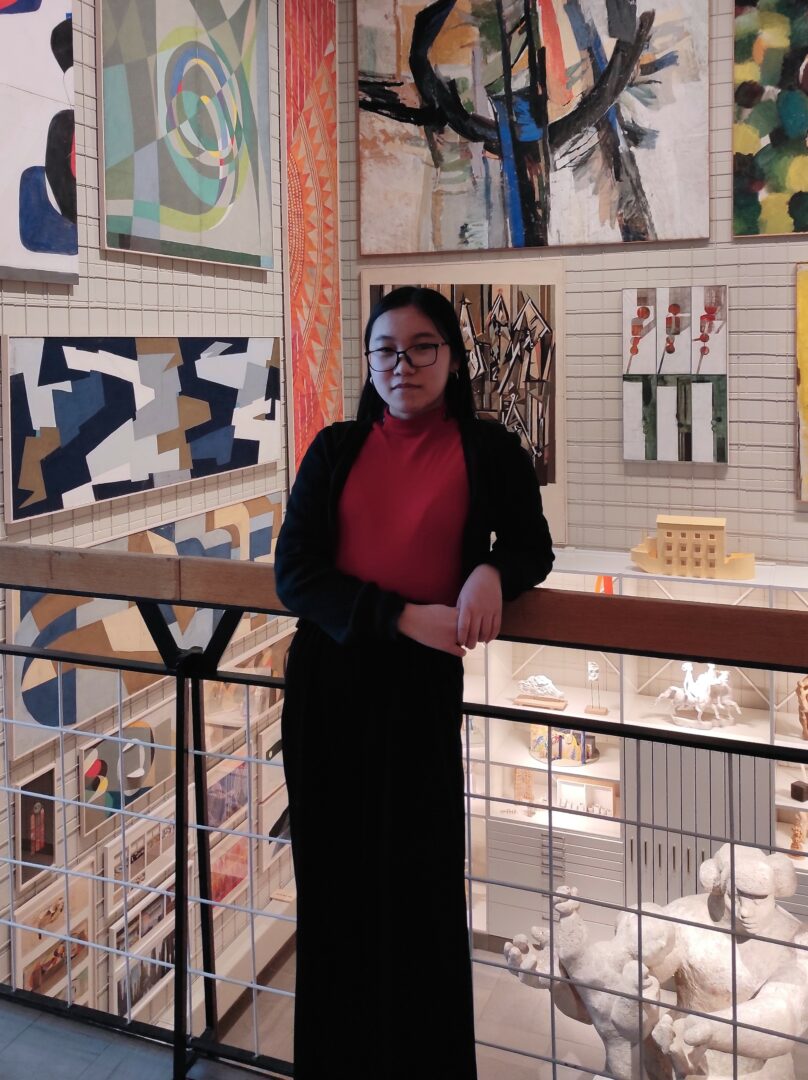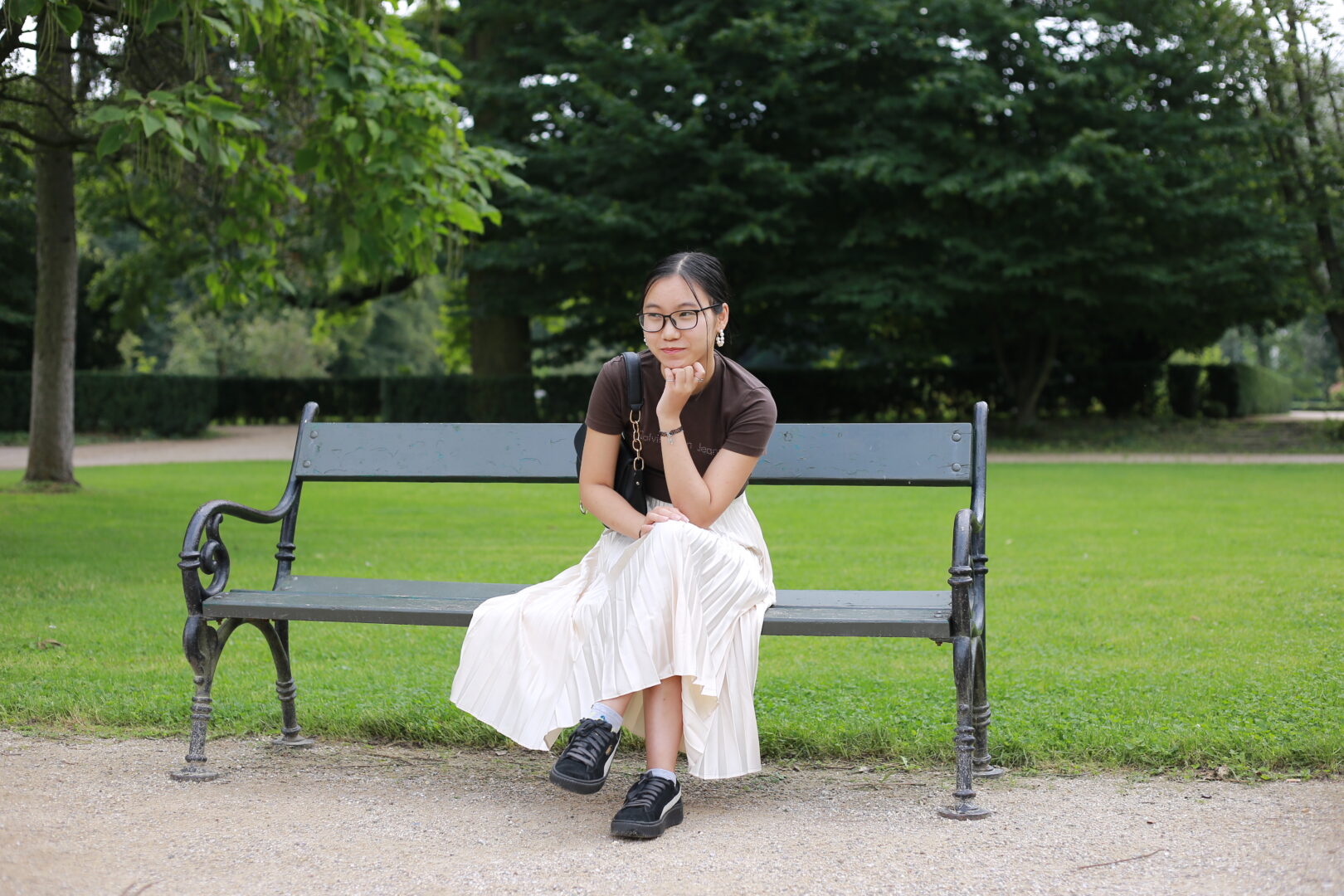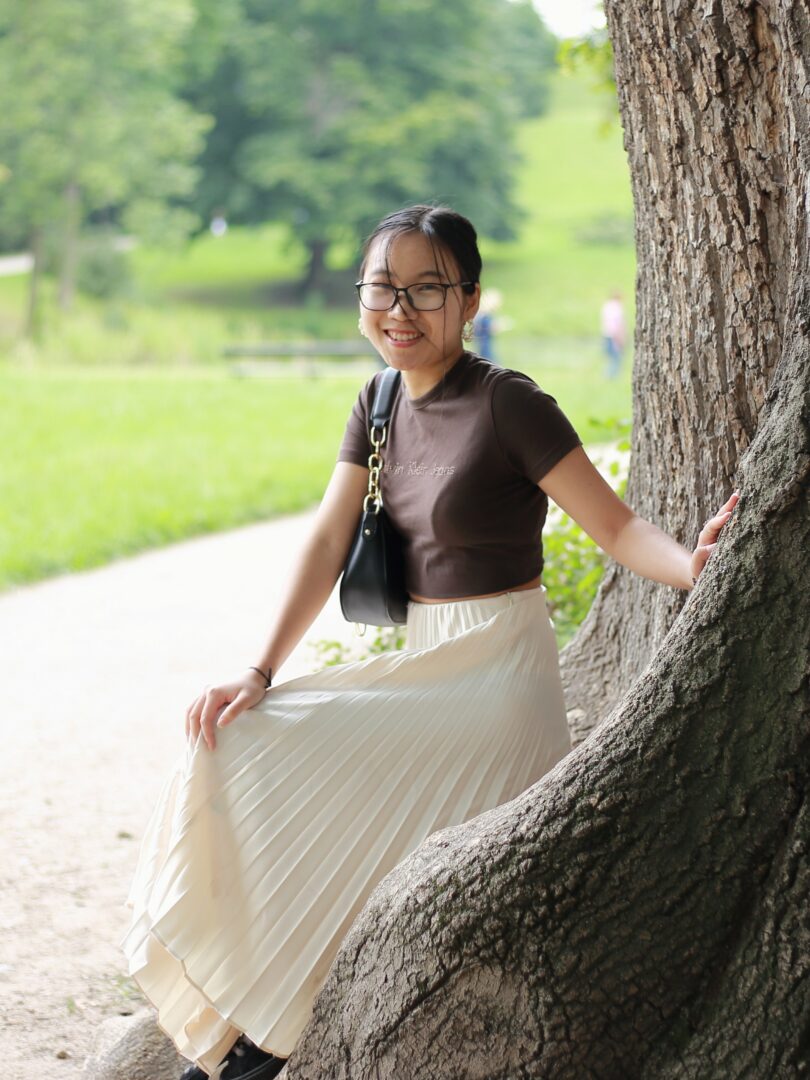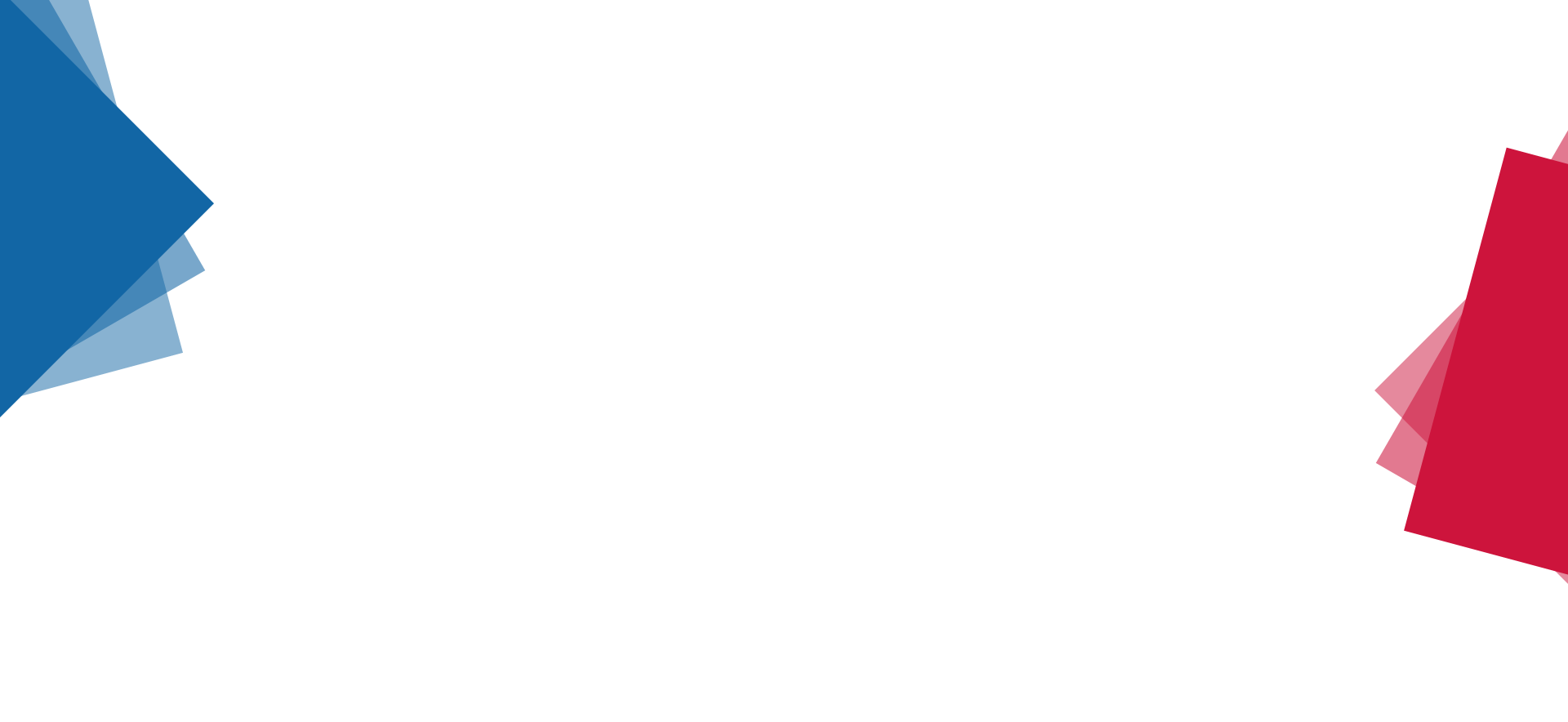Ania Nguyen, 23, did her entire schooling at the French School in Warsaw (from Moyenne Section to Terminale), graduating with a Bac Économique et Social in 2018. She is currently a Master’s student at Grenoble École de Management. As a Vietnamese and Polish national, she shares with us her experience of the French school system…
What was your career path after the Lycée Français de Varsovie?

As I wasn’t sure what I wanted to specialize in after passing my baccalauréat, I enrolled in an economics and business preparatory class in Lyon (Lycée Sainte-Marie). This enabled me to continue my general education with literary subjects such as philosophy and languages, and more technical subjects such as economics, sociology and mathematics.
Compared to high school, the preparatory class requires a much more intense commitment and discipline to meet the demands of the teachers. You have to manage a timetable equivalent to that of Terminale, with weekly supervised homework and oral examinations (khôlles) three days out of five.
Despite this, I really enjoyed studying here. It was an opportunity for me to deepen my knowledge of topics that were close to my heart: the challenges of sustainable development through courses in economics and the history of economics, as well as philosophical questions in general. What’s more, thanks to the preparatory class, I can now say that I have mastered a 5th language, Spanish, to the point of being confident enough to use it in Spain (and even in Italy, as they prefer it to English).
I am currently on a gap year (between my two years of Master’s degree), during which I have carried out and continue to carry out internships in the field of sustainable finance in Paris.
Can you tell us about your current training and how you got into it? What do you like best about it?
I am currently a Master’s student at Grenoble École de Management, which is a business school. I joined the school after passing the BCE (Banque Commune d’Épreuves) competitive entrance exam. This exam gives access to a number of Grandes Écoles de Commerce. It is made up of several written exams, and ends with a period of oral exams in maths, languages, economics or philosophy, and an interview that assesses your “personality”.
My training covers all aspects of business: marketing, finance and accounting, as well as logistics, purchasing and so on. What I appreciate most is the importance it gives to acquiring practical skills and building a professional project, not only through compulsory internships in companies, but also through involvement in student associations.
Alongside my studies at a leading French business school, I had the opportunity to take and pass a bachelor’s degree in philosophy in partnership with Grenoble-Alpes University. I’m still pursuing a master’s degree in philosophy. The themes that have interested me are Hegelian dialectics, dialectical materialism, the Arab philosophy of the perfect man, and gender studies, in particular the notions of intersectionality and strong objectivity in the feminist movement.
You now want to switch to sustainable finance. Can you describe this field? Why did you make this choice?
I was made aware of environmental issues during my time at the LFV, thanks to the teachings of several professors on the subject.
I chose to specialize in finance, even though I thought in preparatory school that I absolutely didn’t want to work in that field. I changed my mind after my first internship with UNESCO GREEN CITIZENS, a campaign and digital platform that showcases citizens’ initiatives to tackle environmental issues. The main obstacle to developing these initiatives was funding. I realized that if I really wanted to see an ecological transition, it was through finance that it could happen.
I then did an internship with an asset management company (Meeschaert Asset Management), where more than half of the assets under management are managed using a selection approach that integrates extra-financial criteria (environmental, social, societal and good governance) upstream of a selection based on financial criteria.
At present, I’m doing an internship at Yotta Capital Partners, which is also an asset management company, but which invests in unlisted companies with the aim of supporting its participation in decarbonization and the ecological transition.
At my school, which promotes community involvement, I am also a member of the Bureau National des Étudiants en école de Management (BNEM). I head up the “Ecological Issues” Commission, with a view to encouraging and supporting all business schools to integrate these issues into their curriculum.

What memories do you have of the LFV? Why would you recommend it?
I spent my entire childhood at the LFV, and my fondest memories are of friendships: the hours spent in the playground and corridors of elementary school, the moments spent in the canteen or outside in the ping-pong area, and then in the common room at secondary school.
Studying at the LFV gives you the opportunity to develop your open-mindedness by being exposed to French and Polish culture, as well as to other cultures by meeting students from different countries. In this way, you learn not only to understand and adapt to differences, but also to live in a diverse cultural context.
What I also really enjoyed at the LFV was the closeness we developed with all our teachers, as well as with the management and administrative staff, which made for a learning environment in which I felt completely at ease.
Why did your family choose to enroll you at the LFV?

As I remember it, it was mainly a practical choice. At the time, many of their friends were leaving Poland to return to Vietnam. So, as a precaution, they chose a French school, because they could be sure that with the network of French schools abroad (AEFE), there would be one in Vietnam just in case.
Being of Vietnamese origin, how do you reconcile this facet of your identity with your life in Europe (France and Poland)?
Although I am Vietnamese, having been raised by Vietnamese parents, I also consider myself to be Polish: I was born in Warsaw and my parents have lived in Poland since their studies. So I haven’t had any particular difficulties living in Poland, apart from a few racist remarks in the street, which I also have to deal with in France.
Do you manage to cultivate this Vietnamese culture? Does it give you a different outlook on things?
I know Vietnamese: it’s the main language with which I communicate with my family. Yet it’s the language I have the weakest command of after Polish, French and English.
The only way I’ve found to nurture my Vietnamese culture is by reading novels and essays about it. With no real cultural guide to Vietnamese literature, this is a constant challenge.
Nevertheless, it’s important for me to maintain my ties with this culture, as it enables me to have an intersectional view of things, to really understand that values are not universal. The combination of my Vietnamese culture with my Polish culture, but also my French culture thanks to my educational background, comes naturally.
I draw my values from three cultures: my Vietnamese culture is very present in my relationship with my elders and with food, my Polish culture, dominates and gives rhythm to my everyday life, and my French upbringing is at the origin of the societal values that dictate my professional choices.



